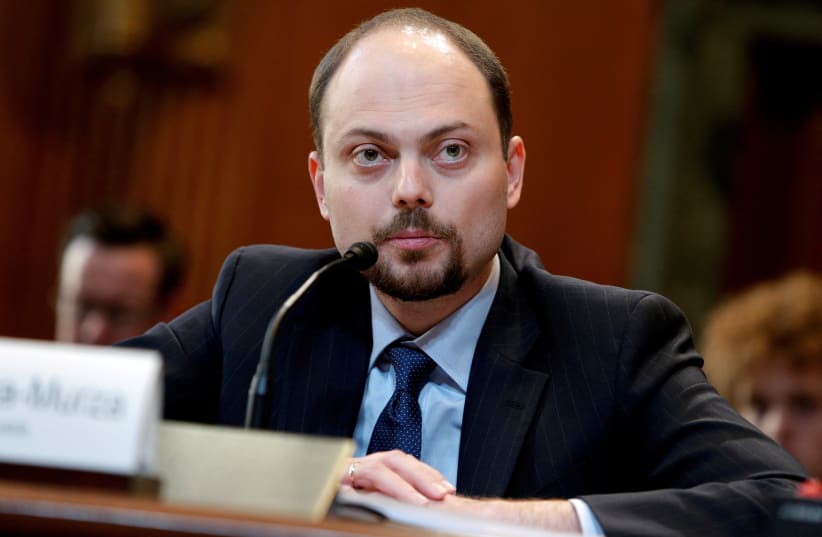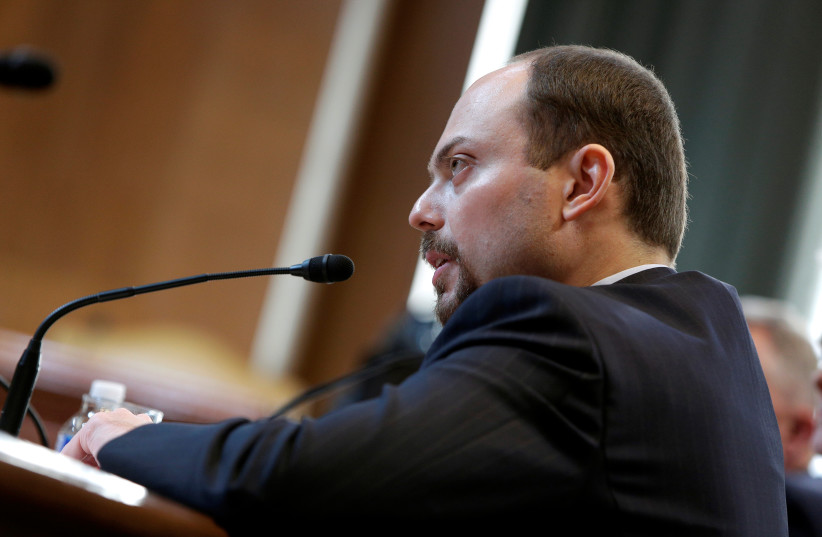The wife of jailed Russian dissident Vladimir Kara-Murza said on Monday the lives of many political prisoners in Russia, including her husband's, were at risk in the wake of Alexei Navalny's death in an Arctic penal colony last month.
Kara-Murza, who had condemned Russia's war in Ukraine and lobbied for Western sanctions against Moscow, was sentenced to 25 years last April on treason and other charges that he denied, comparing the case against him to a Stalinist show trial.
It was the harshest sentence imposed on an opposition politician since the start of Russia's full-scale invasion of Ukraine in Feb. 2022.
"I understand that lives of many people who ended up behind bars today because of their opposition to the regime, many lives are in danger," said Evgenia Kara-Murza, advocacy director at the Free Russia Foundation, a civil society organization.
"That is not just my husband's life who is indeed a years-long opponent of the regime, but also the lives of strong and vocal opponents of Vladimir Putin."
Navalny, President Vladimir Putin's fiercest critic inside Russia, died in a prison camp at the age of 47 on Feb. 16., sparking accusations from his supporters that he had been murdered. The Kremlin has denied any state involvement in his death.
Protesting the war in Ukraine
Evgenia Kara-Murza said other activists, including Alexandra Skochilenko, jailed for protesting against the war in Ukraine by replacing supermarket price tags with calls to stop the conflict, and Alexei Gorinov, a Moscow district councilor also jailed for criticizing Russia's invasion, were also at risk.
Vladimir Kara-Murza, who suffers from a neurological condition after surviving two attempts to poison him, was transferred to a new Siberian penal colony in January and placed in solitary confinement, his wife said.
"Now he's being held by basically the same people who tried to kill him twice in the past," Evgenia Kara-Murza said.
She said her husband was being held in a small cell that measures around six square meters, with a bed affixed to the wall during the day to prevent him from lying down and one backless stool. He is not allowed to receive phone calls or visits.
Last December, prior to his transfer, Kara-Murza had a brief telephone conversation with his three children.
"We have three kids, and that was a 15-minute phone call, which meant that they each got five minutes on the phone with their dad," Evgenia Kara-Murza said.
"I had to measure those minutes with a timer."

